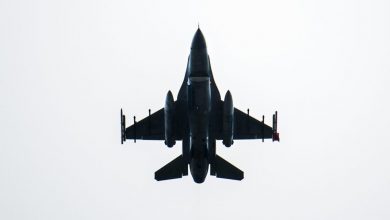Report: The US has lost 6 MQ-9 Reaper drones in a month and half

The Houthis have shot down the sixth American MQ-9 Reaper reconnaissance and strike UAV over Yemen
The video of the downing of another UAV was published by the Houthi publication MMY.
The footage shows the MQ-9 Reaper being tracked by an optoelectronic system and the UAV being hit by an anti-aircraft missile. After that, footage of the wreckage of the downed drone on the ground was published.
The downing of the drone is confirmed by the American correspondents at the Pentagon from the Associated Press and Fox News.
According to Jennifer Griffin, FOX correspondent, this is the sixth MQ-9 Reaper drone shot down by the Houthis since March 3, and the fifth since the U.S. Central Command resumed intensive airstrikes against the Houthis on March 15.
“Despite 35 consecutive days of bombing by the U.S. military, the Houthis continue to fire missiles to destroy these expensive U.S. assets and continue to fire ballistic missiles at Israel. Most international shipping in the Red Sea has not been restored,” the journalists write.
According to American journalists, since the beginning of the conflict between Israel and Hamas in October 2023, the Houthis have shot down at least 16 American drones. Demand for Reaper drones is at an all-time high, as various US military commanders often say there are not enough of them for their combat commands.
As of December 2024, there were 230 MQ-9s in the US arsenal, a US defense official told Fox News.
The effectiveness of the US anti-Houthi campaign
According to analysts, up to 80 Houthi military officers could have been killed in the strikes, but the top of their military and political leadership, as well as some missile launchers, remain unharmed.
According to the same estimates, only a ground operation can radically change the situation. However, analysts do not expect a full-scale deployment of U.S. ground troops; only limited special forces may be involved to coordinate strikes. In the event of a ground operation, the United States is likely to provide logistical support and ammunition.

At the same time, it was reported that Iran had ordered its military to leave Yemen because of the constant US strikes on the Houthi group. As a justification, it was stated that such a step is aimed at avoiding a direct confrontation with the United States in the event of the death of the Iranian military.
Tehran believes that the Houthis may lose influence in the coming months or even days, so their continued support makes no sense. As The Telegraph’s source explained, Yemen’s Houthis were part of a larger system that relied on Hassan Nasrallah, the former leader of Hezbollah, and Syrian President Bashar al-Assad. However, if this structure is no longer functioning, there is no point in preserving only one element of it.





